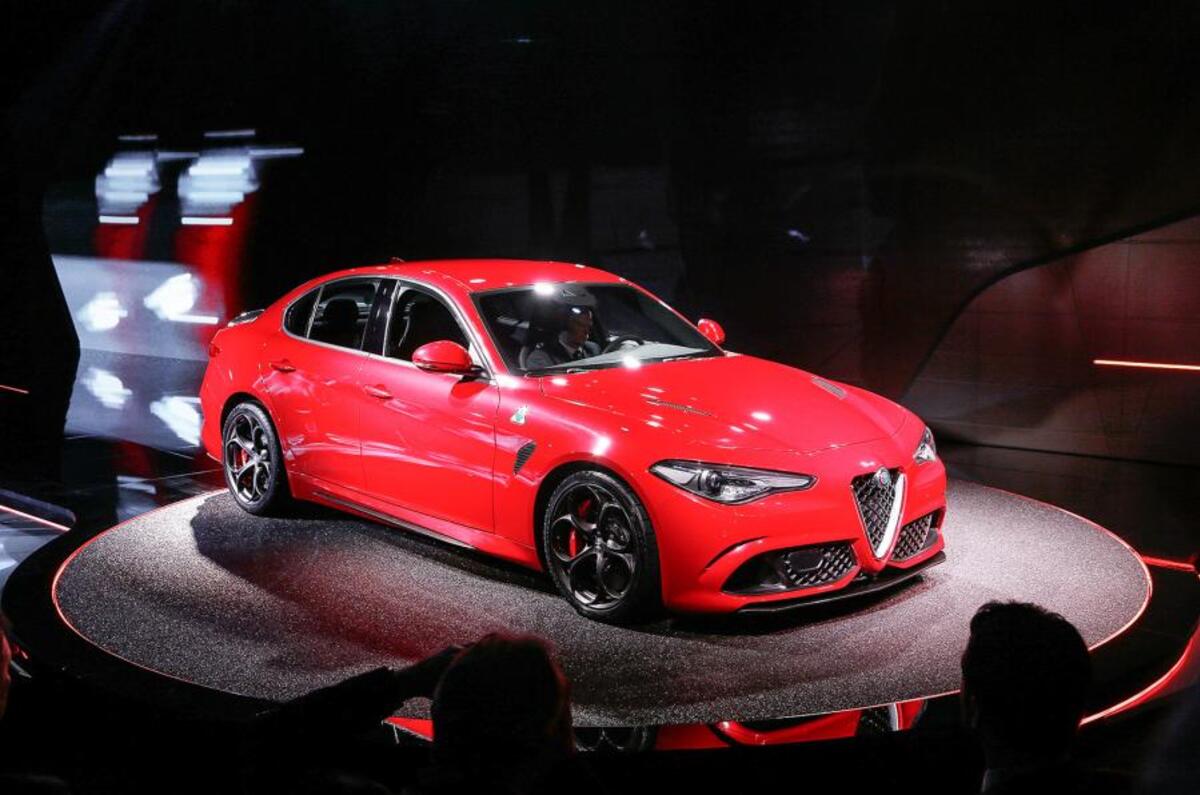Looking at the list of model launches planned for tomorrow, you’d be forgiven for thinking that the 2015 Frankfurt auto show is mostly about SUVs.
We’ll be treated to high-performance SUVs (the Jaguar F-Pace) all-electric SUVs (the expected Audi eTron concept) and more jacked-up ‘crossovers’ than you can shake a stick at.
For me, however, the most interesting thing happening at Frankfurt is the public unveiling of the new Alfa Romeo Giulia.
A clean-sheet design, it’s the first rear-drive mainstream Alfa since the 75 was killed off 23 years ago.
The story from within Alfa is that ‘nothing was left to chance’ with the creation of the Giulia. Understandably, there has been scepticism.
The 156 remains a styling icon and its use of clever double-wishbone front suspension lifted the driving experience of the front-drive ordinary. Sales were relatively strong, but drifted off. The 156-based 147 hatchback, which Alfa thought would see in the 100s of thousands also failed to anchor Alfa in the minds of Europe’s premium car buyers. Certainly, Alfa had often shabby quality, questionable longevity and a below-par dealer network.
At motor shows in the past I have watched as German auto industry people openly scoff at the idea that Fiat Chrysler can, in one jump, build a car that matches the best of Mercedes, BMW and Audi.
However, Alfa’s boss (and also Maserati chief) Harald Wester is a German engineer who started his career with VW and then shifted to Audi, overseeing the ground-breaking A2 city car, a vehicle that was arguably well ahead of its time.
Wester insists that the Giulia is a no-compromise car, developed by a hand-picked team that was moved into its own R&D facility near Modena, someway from Alfa’s HQ in Turin.
In a recent interview Wester said that the new Alfa Romeos are intended to ‘evoke emotions’ when the driver is at the wheel. Wester said that the driver should feel ‘in control… an integral part of the system.’
His pitch is that Alfa will be heading in the opposite direction to the German opposition, which is unashamedly heading towards increasing the car’s control over the driver.
Two things intrigue me. Is the auto industry’s premium brand market is becoming increasingly conservative, sticking with established brands, rather than being prepared to take a chance on something new? And are those premium drivers, as Audi is now insisting, more interested in comfort, ease and connectivity when travelling?
Oddly enough, both Jaguar and Alfa Romeo are selling similar numbers of cars (although Jaguar’s sales are rather more upmarket at the moment) and both are trading on sharp-witted ‘driver’s cars’ aimed at those with a taste for the winding B-road.




Join the debate
Add your comment
Alfa has had its day
LP in Brighton - Alfa has had its day
Autocar wrote: Wester said
What Wester is really saying is they don't have the cash to compete with the big German brands. So things are going be a bit less sophisticated or "rawer" would be the over-used euphemism. This is the same guff uttered by the Phoenix-era Rover with their MG "Z" models, which were similarly over-branded with loads of silly badges, primarily to conceal the automotive turd lurking beneath.
We all know how that panned out and Alfa is going the same way. Homologating the Giulia for the US is a complete waste of money; Maserati have been caught falsely inflating their sales figures and they're supposed to be a much stronger brand than Alfa. If they can't cut it then what hope does little old Alfa have? Sure, every True Petrolhead from here to Timbuktu sings the praises of Alfa but none of these people ever actually buy one. No, this car is doomed, a waste of a nice new rear-driver with double wishbones, too. It's all very upsetting.
Nonw of the MG Z models were
Decisions, decisions...